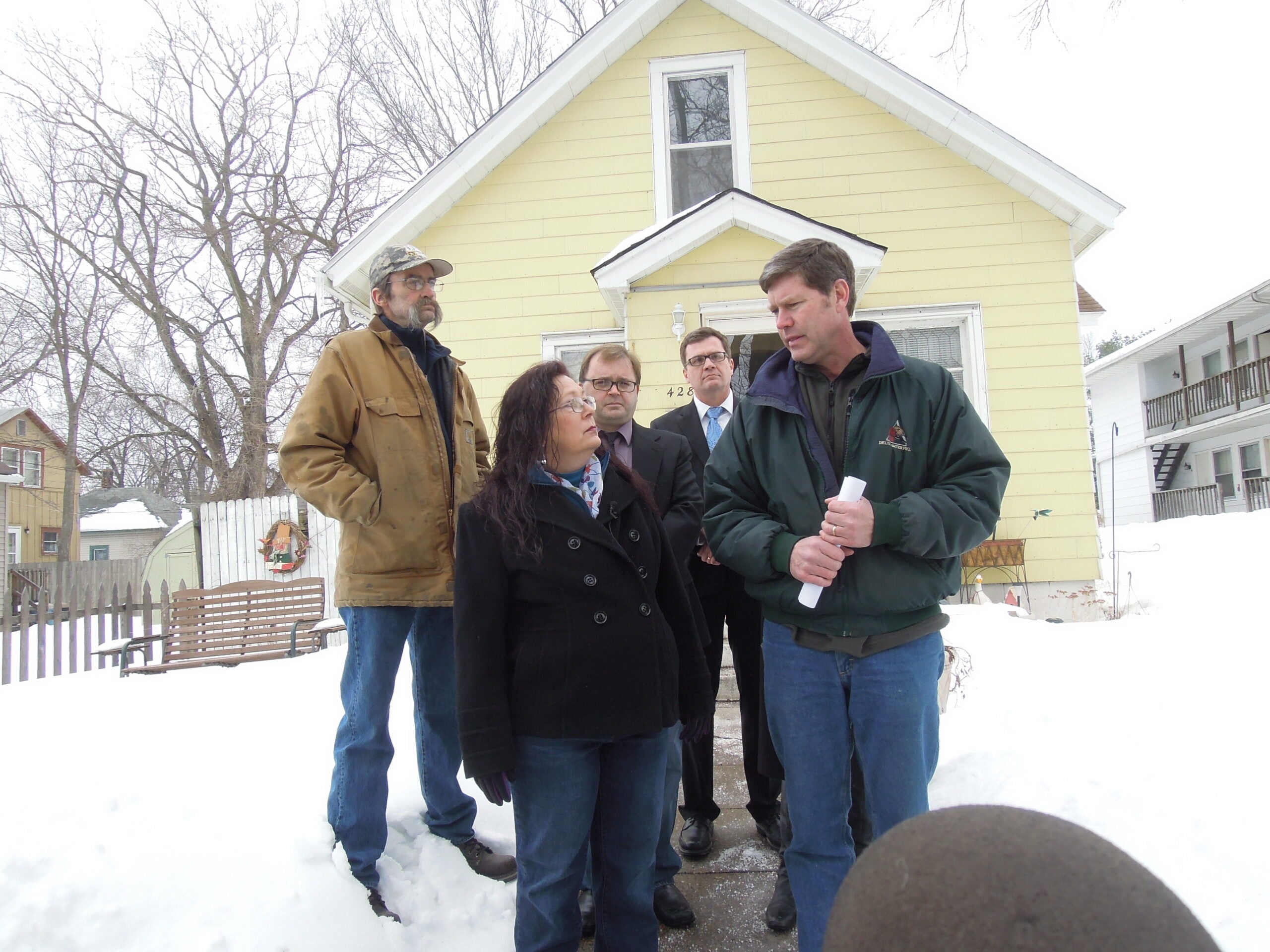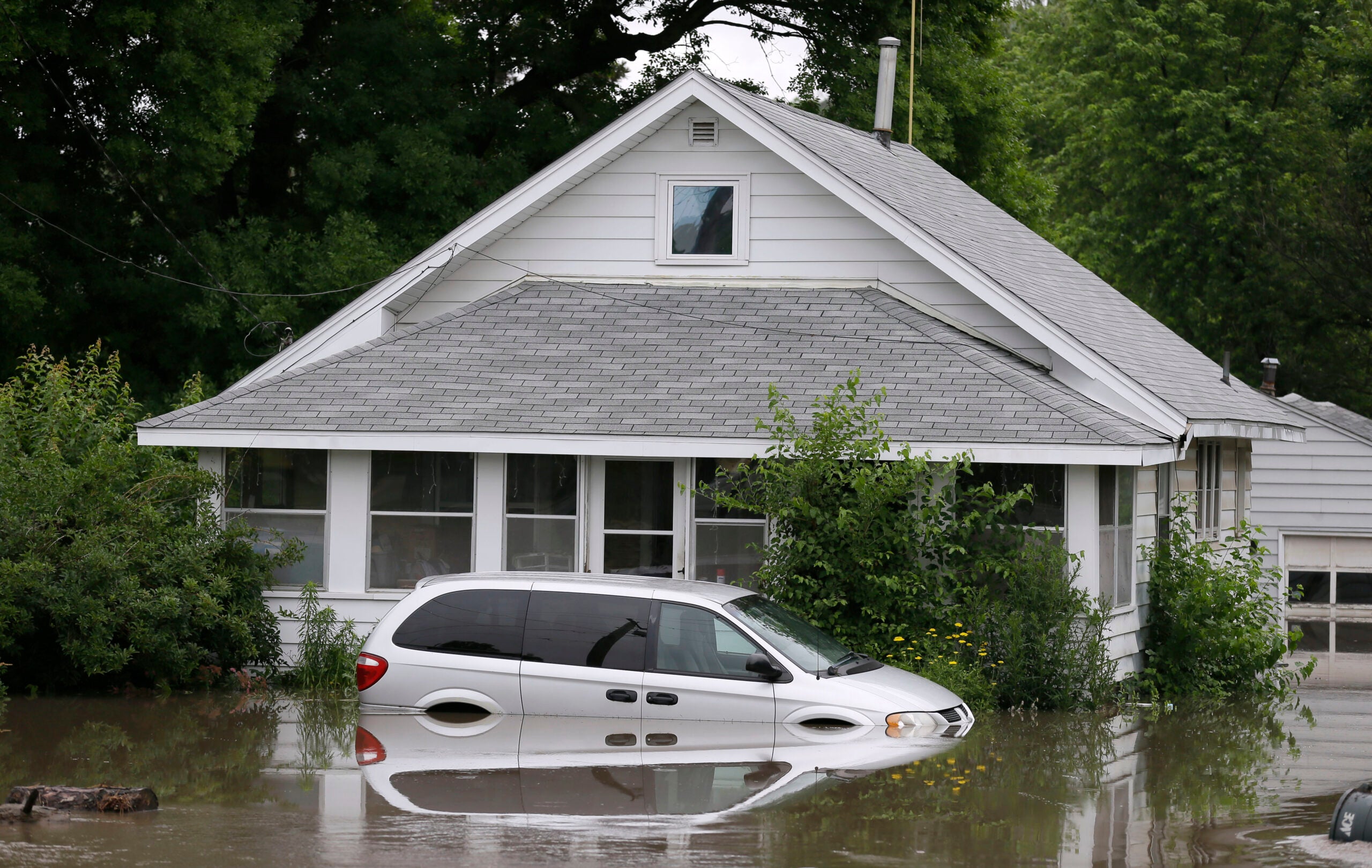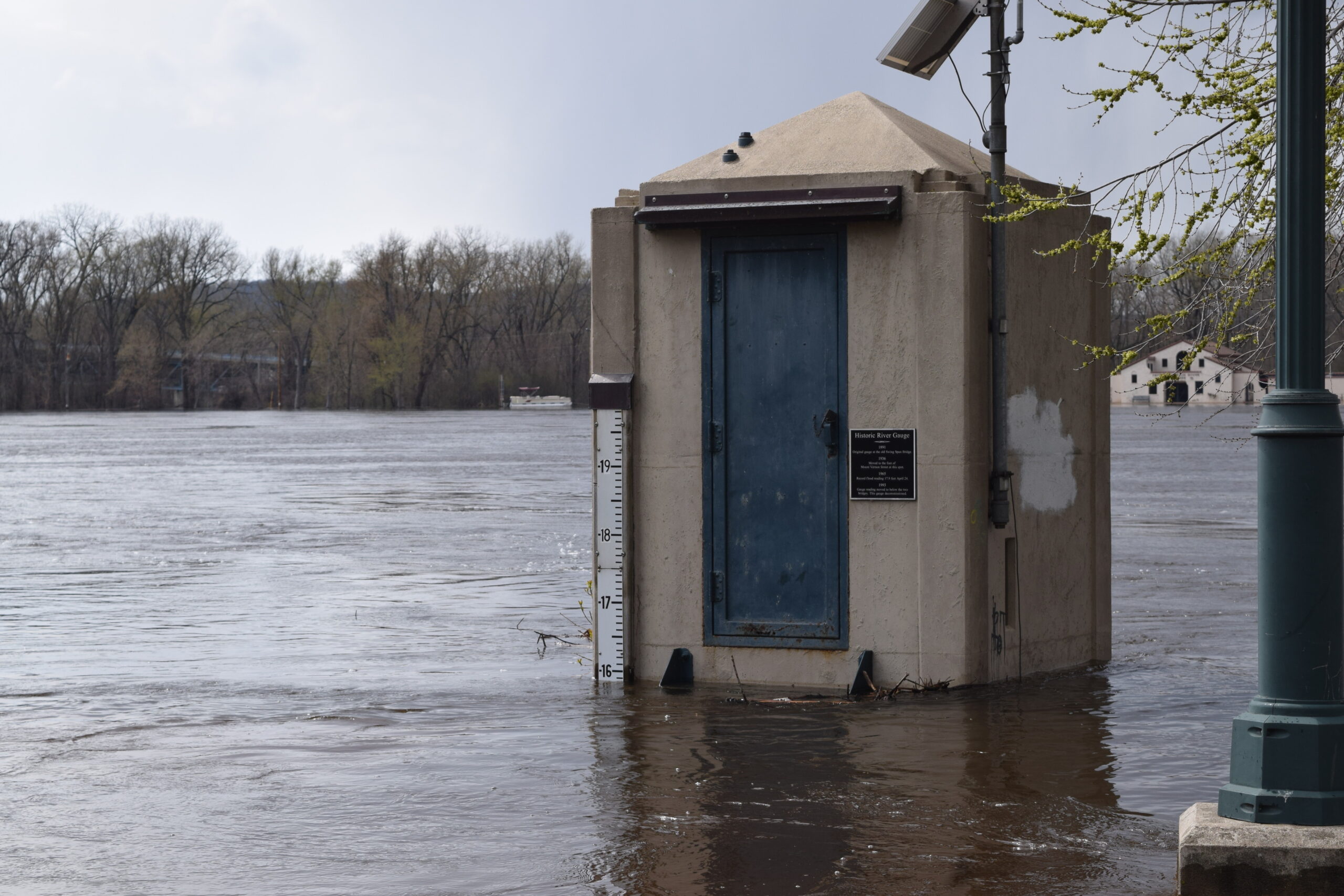Residents living in floodplains will get some relief from sudden flood insurance rate hikes.
Teresa Secord lives on the north side of La Crosse, which happens to be in the floodplain. Even though she’s never had water damage, Secord has to pay for flood insurance with each mortgage payment. She was shocked to find out their rates skyrocketed from $540 annually to almost $3,700 because of a 2012 law that reformed the National Flood Insurance Program.
Secord worries she can’t afford to stay in her home. “None of us will be able to sell our homes. You’d have to give them away. And [after] 17 years, we’ve just about paid for it. We have a lot of equity in it,” Secord said.
Stay informed on the latest news
Sign up for WPR’s email newsletter.
But there may be relief for homeowners like Secord. This week, the House passed a bill, the Homeowners Flood Insurance Affordability Act, that reverses some of the changes from the 2012 law.
The bill sets a cap on flood insurance rates and spaces the increases out, encourages FEMA to work with local communities on crafting flood maps, and places restrictions on building in high risk flood zones.
More than 1,500 homes are in the floodplain in La Crosse, and local officials view this bill as temporary relief.
Doug Kerns is with the city’s engineering department. He says this bill will prevent people from leaving their homes.
“If they were built here, compliant at the time and then maps come out 20-30 years later that say, ‘Your risk is extremely high, now you have to pay these extreme rates,’ it literally will force people to walk away from their homes,” Kerns said.
The House and Senate now need to work out their difference to craft a final version of this bill.
Wisconsin Public Radio, © Copyright 2024, Board of Regents of the University of Wisconsin System and Wisconsin Educational Communications Board.





